
Beyond Brexit:
A programme for democratic reform
3. Rip up the Royal Prerogative
This monarchical veto on democracy is an affront to the people.
Want to read spiked ad-free? Become a spiked supporter.
In the third piece in our five-part programme for democratic reform, Luke Gittos makes the case for scrapping Royal Prerogative powers. Read Brendan O’Neill’s introduction to the series here, Mick Hume’s piece on why we must leave the European Union here, and Tim Black’s piece on why we must abolish the House of Lords here.
Boris Johnson was elected leader of the Conservative Party on 23 July. He didn’t become prime minister until the following day, however, when he was appointed by Queen Elizabeth II. The reason? The Royal Prerogative – the anachronistic qualification of British democracy which means the monarch retains the power to appoint the prime minister under our unwritten constitution.
In the words of 19th-century legal theorist AV Dicey, the prerogative is the ‘residue of discretionary or arbitrary authority, which is at given time legally left in the hands of the Crown’. In other words, prerogative powers are those exercised by the Queen without any need to consult parliament. These include the power to appoint ministers, to declare war, and to enter into international treaties. If, as part of the Brexit process, we are serious about restoring power to parliament, and more importantly to the people, then these remnants of monarchical power have got to go.
Prerogative power has always been in conflict with democracy. Early legal cases that considered and challenged the use of the Royal Prerogative came about when the arbitrary power of the monarch came into conflict with parliament. In 1606, a merchant refused to pay duty on goods that had been imposed by King James I. It lead the courts to consider the ‘Case of Impositions’, one of the earliest legal challenges to the extent of prerogative power. The case led to parliament legislating to prevent the king from imposing tariffs without its consent, in the 1628 Petition of Right. It was, in part, Charles I’s continued use of royal power to collect customs which led to the English Civil War of the 1640s. The Glorious Revolution of 1688 and the Bill of Rights in 1689 limited prerogative powers further. Article 1 of the bill stated that the ‘power of suspending the laws or the execution of laws by regal authority without the consent of parliament is illegal’.
Yet the fight against prerogative power was never truly won. The English constitutional theorist Walter Bagehot wrote in 1878 that the monarch retained the right ‘to be consulted, to encourage and to warn’. Bagehot thought that such power was justified because the public, apparently unable to understand the complexities of the constitution, would be more willing to abide by the will of the king than by ‘impersonal laws’ passed by parliament. Today, Halsbury’s ‘Laws of England’, the encyclopaedia of law in England and Wales, echoes Bagehot in describing how the monarch ‘has the right to be consulted, the right to encourage, and the right to warn’, as well as to ‘offer, on her own initiative, suggestions and advice to her ministers even when she is obliged in the last resort to accept the formal advice tendered to her’.
These rights are significant. They guarantee a political role for an unelected monarch. Consider the significant power the queen would wield in the event of an inconclusive General Election. In 2010, senior civil servants prepared for a hung parliament by consulting the Armstrong Memos, a series of memoranda drafted by Labour prime minister Harold Wilson’s private secretary, Robert Armstrong. The memos explained how the queen’s power operates in an election in which no party wins an overall majority. The memos suggest that the queen has the power to appoint someone who is not the elected leader of the largest party, or even the elected leader of the second largest party, in the event that this is more conducive to forming a coalition. In 2010, this became known as the ‘Miliband option’, as it was thought that the Liberal Democrats may have preferred to enter coalition with David Miliband, the then foreign secretary, rather than the then prime minister, Gordon Brown. She could also refuse a prime minister’s request to dissolve parliament shortly after an inconclusive election unless she was satisfied that another vote was ‘unavoidable’.
Also, consider the secrecy that surrounds these powers. Only last week Boris Johnson was accused of ‘breaking protocol’ when he reported publicly what was said by the queen during their private meeting. Prerogative powers and regal influence are exercised behind closed doors in order to protect the role of the monarch from public scrutiny. The queen could still be entitled effectively to resolve the results of a democratic General Election in private.
It is true that Royal Prerogative power is generally exercised by ministers on the queen’s behalf. Constitutionally, she is bound to follow the government’s advice. But that doesn’t mean that the powers are merely symbolic. On the contrary, these powers allow ministers to behave like monarchs. The effect of the Royal Prerogative is to give ministers extensive power to make decisions away from the scrutiny of democratic debate and engagement.
These decisions affect the day-to-day running of the state and also the conduct of international affairs. The Royal Prerogative is used to appoint ministers and senior civil servants. Members of the judiciary were appointed by prerogative powers exercised by the Lord Chancellor until 2006, when that power was delegated to the Judicial Appointments Commission.
Prerogative powers are often deployed in underhand ways. In 1997, then prime minister John Major prorogued parliament in order to avoid parliamentary discussion of a report into the ‘cash for questions’ scandal by the parliamentary commissioner, Sir Gordon Downey. Five Tory MPs had been accused of taking significant sums of money to ask questions on behalf of Mohamed Al-Fayed, the millionaire owner of Harrods. Major prorogued parliament for the longest time since 1918. The Liberal Democrat MP Simon Hughes accused Major of taking the decision to prorogue parliament in an ‘entirely personal’ way in order to prevent MPs from debating the report prior to the election.
Prerogative powers have also had a significant impact on international relations. It reached the headlines in 2017, when Gina Miller challenged the government’s authority to trigger Article 50 using the Royal Prerogative. But this was not the first time the prerogative shaped our relationship with the EU and its preceding institutions. Then prime minister Edward Heath used prerogative powers to sign the treaty that entered the United Kingdom into the European Economic Community in January 1972. It was assumed that parliament would simply agree to the treaty later on. Parliament did not ratify it until October 1972. The public did not have a say on EEC membership until the referendum in 1975. The prerogative has always allowed decisions regarding the EU to take place over the heads of the people.
Then there is the decision to go to war. Sending citizens to fight is surely the most important decision a country can take. Yet this decision is still taken in the name of an unelected monarch. Prerogative power means that any parliamentary vote on the decision to go to war is merely advisory and not binding on the government’s decision. It has become a convention for parliament to vote on foreign intervention, but the government can still take the country to war against the will of parliament. This reflects a principle of our constitution that elevates the will of the queen, as expressed through ministers, above the views of the elected MPs, and certainly the public more broadly, when it comes to international conflict.
This has had historic significance. In 1981, the Labour leader Michael Foot argued that parliament should be able to rule on decisions that risked deepening the conflict with Argentina over the Falklands Islands. Margaret Thatcher refused, claiming it was the ‘inherent jurisdiction of the government’ to decide how to conduct the conflict using prerogative powers. Parliament could ‘pass judgment on the government’ when the conflict was over, she said.
The prerogative powers even influence how parliament is permitted to discuss going to war. In 1999, the Labour MP Tam Dalyell put a bill before parliament seeking to ensure that any declaration of war with Iraq would have to win the approval of MPs. The bill could not even be debated because any proposed limitation of prerogative power needs the consent of the queen before being discussed. The Royal Prerogative even forbids MPs from debating the future of the monarchy without the queen’s consent.
Democrats have, throughout history, objected to the use of prerogative power. Tony Benn understood the undemocratic nature of these powers when he described them as the ‘final guarantee that democratic decisions taken by the parliament and the people could never be allowed to undermine the hierarchical and semi-feudal system we have’. He pointed out that these powers protect certain government decisions from public influence.
This is why removing these anachronistic powers would strike a blow for democracy. It would make it clear that power is only ever exercised in the name of the people, not the monarch. It would bolster parliamentary sovereignty over the power of the Crown. In Brexit Britain, we should finish the work of the 17th-century English radicals and finally bring an end prerogative powers – for good.
Luke Gittos is a spiked columnist. His new book, Human Rights – Illusory Freedom: Why We Should Repeal the Human Rights Act, is published by Zero Books. Order it here.
Picture by: Getty.
Celebrate 25 years of spiked!
A media ecosystem dominated by a handful of billionaire owners, bad actors spreading disinformation online and the rich and powerful trying to stop us publishing stories. But we have you on our side. help to fund our journalism and those who choose All-access digital enjoy exclusive extras:
- Unlimited articles in our app and ad-free reading on all devices
- Exclusive newsletter and far fewer asks for support
- Full access to the Guardian Feast app
If you can, please support us on a monthly basis and make a big impact in support of open, independent journalism. Thank you.




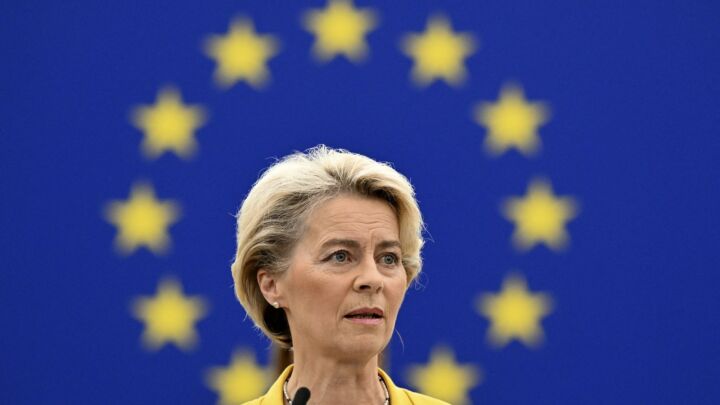


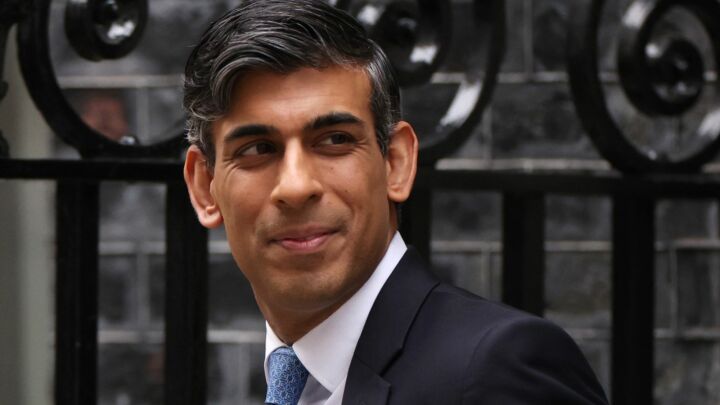
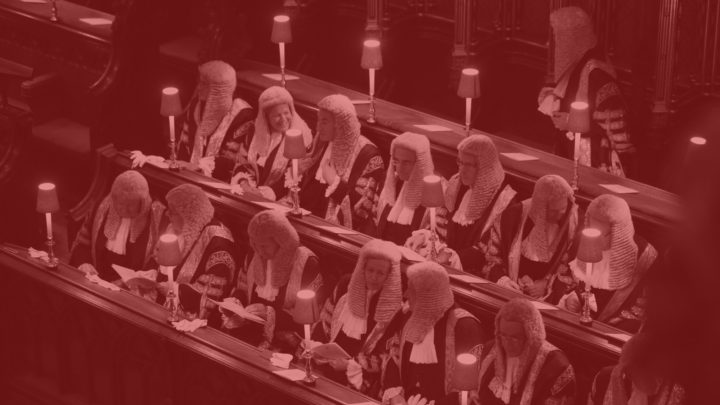
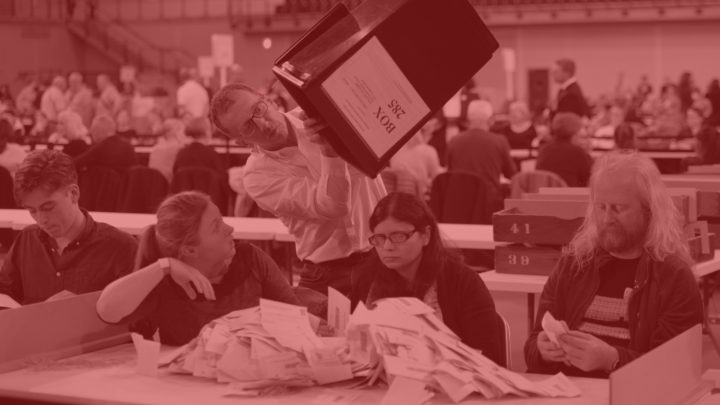
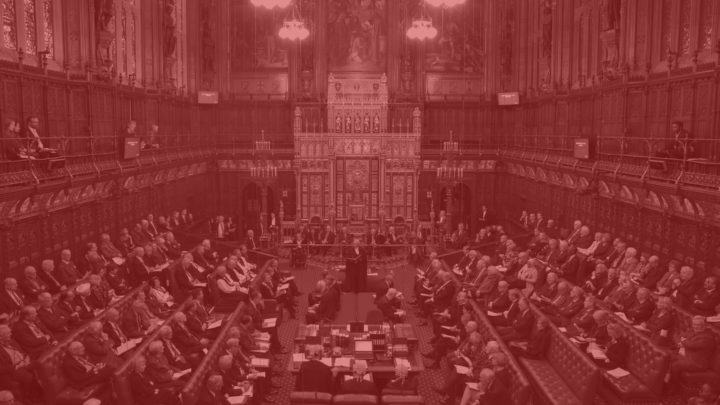
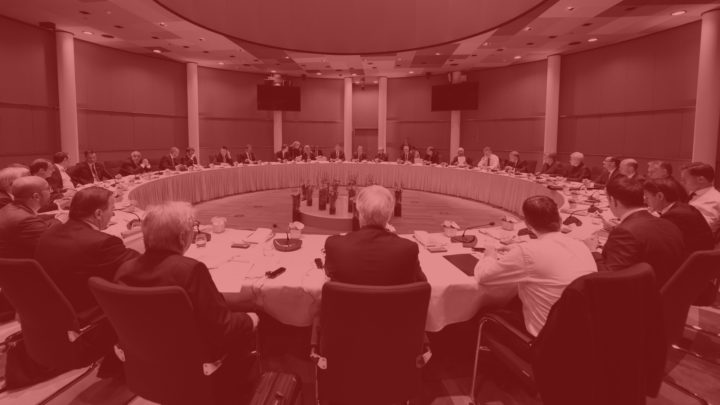

Comments
Want to join the conversation?
Only spiked supporters and patrons, who donate regularly to us, can comment on our articles.